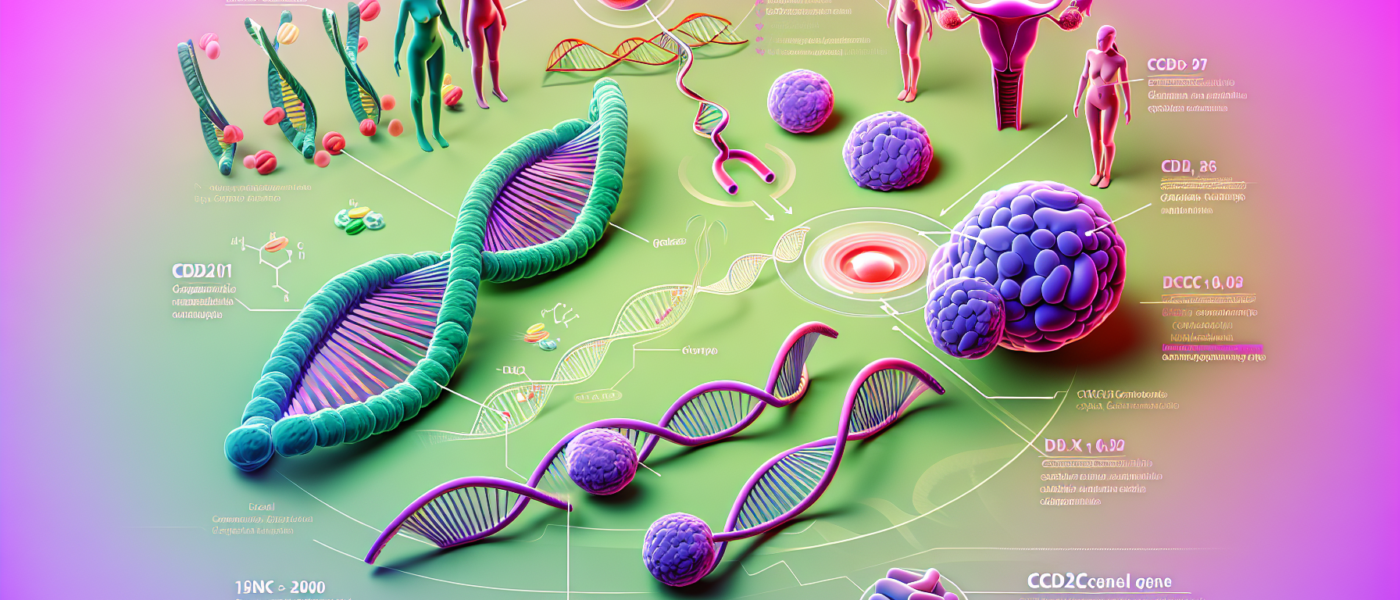The Genetic Variant Shaping Women’s Reproductive Health: Insights from the CCDC201 Gene
The Genetic Underpinnings of Reproductive Health in Women
Researchers have identified a pivotal stop gain variant in the CCDC201 gene that substantially influences women’s reproductive health outcomes. This article delves into the genetic factors affecting menopause age and primary ovarian insufficiency, drawing on a hypothetical study that illuminates these genetic intricacies. Understanding such genetic underpinnings can open doors to better health management and preventive strategies for women.
A Specific Genetic Variant and Its Consequences
The identified genetic variant in the CCDC201 gene plays a crucial role in determining menopause age. Women who inherit this variant in a homozygous state experience menopause approximately nine years earlier than non-carriers. This has led researchers to a significant breakthrough: recognizing primary ovarian insufficiency (POI) in nearly half of the women with this variant, which means reaching menopause before age 40. While the prevalence of this genotype stands at about 1 in 10,000 women of Northern European descent, its effects are profound.
The repercussions of this genetic variant extend beyond early menopause. Women who carry this genotype generally have fewer children and rarely conceive after the age of 30. These reproductive consequences highlight the need for early intervention and targeted genetic counseling, which can offer timely diagnosis and guidance for reproductive choices. The importance of genetic factors in reproductive health underscores the necessity for informed decision-making bolstered by scientific understanding.
Broader Implications for Women’s Health
Previous studies have substantiated the strong genetic influence on menopause age, with heritability estimates ranging from 31% to 63%. Furthermore, family history has emerged as a significant predictor of menopause age, with daughters often following a similar menopause timeline as their mothers. This familial pattern reinforces the importance of considering genetic history when evaluating women’s reproductive health.
Early onset of menopause is linked to increased risks of cardiovascular disease, osteoporosis, and other health conditions, thus presenting broader health implications that extend beyond reproductive health. By understanding genetic factors like the CCDC201 gene variant, healthcare providers can better anticipate and manage the risks associated with early menopause. This comprehensive understanding can facilitate preventive strategies and improve health outcomes for women, especially those approaching midlife.
In conclusion, the genetic variant identified in the CCDC201 gene offers crucial insights into women’s reproductive health. Genetic counseling and early intervention can play pivotal roles in managing the repercussions of this variant, providing women with the knowledge needed to make informed reproductive choices. As research continues to unravel the genetic foundations of menopause and reproductive health, the potential for improved health management and preventive measures for women becomes increasingly promising.
